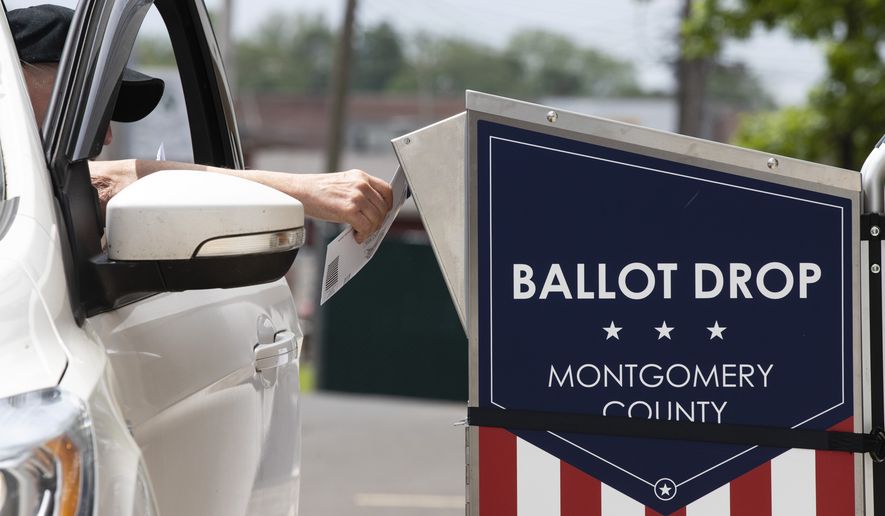Fear of coronavirus isn’t a “disability” and can’t be used as a reason to demand to vote absentee, the Texas Supreme Court ruled Wednesday — though it said the final decision is left to voters themselves, leaving open the possibility many will still try to do it.
State officials had asked the justices to order five counties, including the state’s major population centers, to tell the public that the coronavirus isn’t a valid excuse to vote by mail, and to reject ballot applications they believe are trying to skirt the issue.
The high court refused that request, saying that the state is right about Texas’s law, but the ultimate decision on whether to claim a disability rests with voters.
“We agree with the state that a voter’s lack of immunity to COVID-19, without more, is not a ’disability’ as defined by the Election Code. But the state acknowledges that election officials have no responsibility to question or investigate a ballot application that is valid on its face,” wrote Chief Justice Nathan L. Hecht.
He continued: “The decision to apply to vote by mail based on a disability is the voter’s, subject to a correct understanding of the statutory definition of ’disability.’”
Most states allow absentee voting for any reason, though about 15 still require a specific reason. Texas is one of those that requires a reason.
Across the country, a debate is raging over whether fear of contracting coronavirus from waiting in line or using a voting machine should be accepted as an excuse.
In Virginia, Gov. Ralph Northam has declared it is valid for a slate of elections next month.
Justice Hecht said that’s not the case in Texas.
At root is the question of whether lack of immunity, and therefore some chance of contracting COVID-19, is enough of a likelihood of injury to be a disability.
The Texas high court said voters can take their health into account, but lack of immunity is not on its own acceptable.
Texas Attorney General Ken Paxton called that a win, even though he lost his bid to have the court order election officials to reject ballot applications they believe were made with coronavirus in mind.
Mr. Paxton said those officials still have “a duty to reject mail-in ballot applications from voters who are not entitled to vote by mail.”
“In-person voting is the surest way to maintain the integrity of our elections, prevent voter fraud and guarantee that every voter is who they claim to be,” Mr. Paxton said.
President Trump this week has railed against the push to expand vote-by-mail options, saying it’s a recipe for rampant fraud.
Experts who study the matter say that there is a heightened risk of fraud in mail voting as compared to in-person voting, but there’s no evidence that it has led to massive problems in the five states where vote-by-mail is already the law, or in the 30 other states where it’s permitted for any reason.
• Stephen Dinan can be reached at sdinan@washingtontimes.com.




Please read our comment policy before commenting.